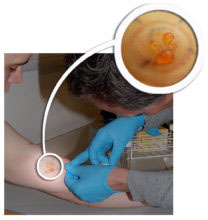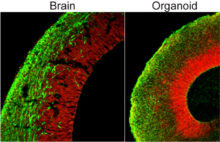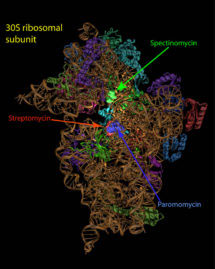Alternatives to using Animals in Research

 A group of LMB scientists were involved as human volunteers in a program of research, studying the cells involved in allergic skin reactions. This is an example of the 3Rs: replacing a technique using animals with a scientifically appropriate procedure in humans
A group of LMB scientists were involved as human volunteers in a program of research, studying the cells involved in allergic skin reactions. This is an example of the 3Rs: replacing a technique using animals with a scientifically appropriate procedure in humans
LMB neurobiologists are preparing 3D human cerebral organoids (mini-brains) from human pluripotent stem cells in order to model human brain development in vitro. This is particularly relevant to neurodevelopmental disorders like autism and schizophrenia.
Analysis of the structure and function of the ribosome, which led to the award of the 2009 Nobel prize for Chemistry, is enabling the rational design of improved antibiotics by computer modeling. These studies offer new approaches for tackling the challenge of antibiotic resistance.

